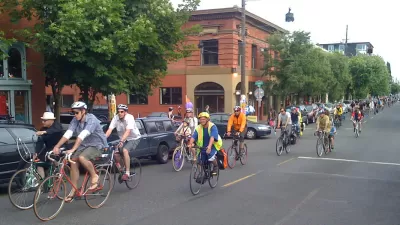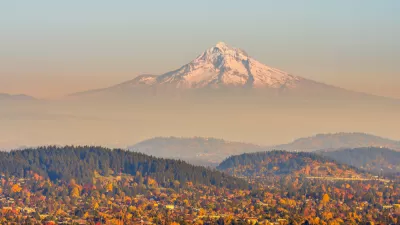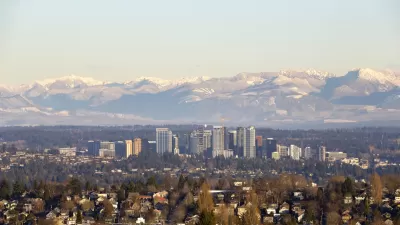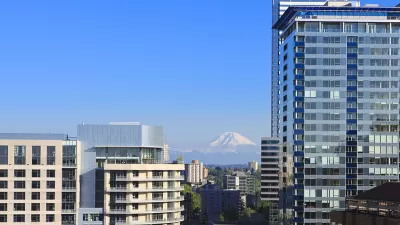While bike commuting is gaining nationwide, it's actually dropping in Portland which has held the enviable title of tops in bike commuting for large cities since 2005. Minneapolis and Seattle, #2 and #3 respectively, are gaining, warns BikePortland.

BikePortland's news editor, Michael Andersen, writes that according to the latest Census' American Community Survey estimates, the city's bike commuting rate dropped "from 6.3 percent to 6.1 percent of the city's working population. Across the whole Portland metro area, bike use held at 2.3 percent."
Minneapolis' bike mode share jumped from 3.4 to 4.5 percent, the sort of increase Portland hasn't seen since the 2007 gas spike. Seattle's rose from 3.5 to 4.1 percent. In each of those cities, the bike-commuting population grew by about 3,000 workers [compared to Portland's decrease of 65].
Worse yet, the drop is not restricted to cycling. "Public transit use in Portland dropped relatively sharply last year, from 13 percent to 11.1 percent of workers in the city limit" while the drive-alone rate increased "from 57.9 to 58.5 percent", Andersen writes.
The only positive commuting data was for walking which increased "from 4.9 percent to 6.9 percent, the highest walking mode share on record and the first time since 2007 that walking to work has been more popular among Portlanders than biking," he writes. Good news for walking was seen "in similar cities, too: from 9 percent to 9.9 percent in Seattle and from 5.8 to 7 percent in Minneapolis."
So, in terms of bike commuting, what are Minneapolis and Seattle doing that Portland isn't? Andersen doesn't explore that question, though in a July piece, he offers five explanations in response to, "What caused Portland's biking boom?"
Is it possible that there is a biking 'plateau', and Portland has reached it? Compare Portland's aforementioned commuting rates to the nation's to put it in perspective: "biking (0.6 percent), walking (2.8 percent), riding transit (5 percent) and driving alone (76.3 percent)".
FULL STORY: Census: Portland biking stalls for fifth year while other cities climb

Maui's Vacation Rental Debate Turns Ugly
Verbal attacks, misinformation campaigns and fistfights plague a high-stakes debate to convert thousands of vacation rentals into long-term housing.

Planetizen Federal Action Tracker
A weekly monitor of how Trump’s orders and actions are impacting planners and planning in America.

San Francisco Suspends Traffic Calming Amidst Record Deaths
Citing “a challenging fiscal landscape,” the city will cease the program on the heels of 42 traffic deaths, including 24 pedestrians.

Defunct Pittsburgh Power Plant to Become Residential Tower
A decommissioned steam heat plant will be redeveloped into almost 100 affordable housing units.

Trump Prompts Restructuring of Transportation Research Board in “Unprecedented Overreach”
The TRB has eliminated more than half of its committees including those focused on climate, equity, and cities.

Amtrak Rolls Out New Orleans to Alabama “Mardi Gras” Train
The new service will operate morning and evening departures between Mobile and New Orleans.
Urban Design for Planners 1: Software Tools
This six-course series explores essential urban design concepts using open source software and equips planners with the tools they need to participate fully in the urban design process.
Planning for Universal Design
Learn the tools for implementing Universal Design in planning regulations.
Heyer Gruel & Associates PA
JM Goldson LLC
Custer County Colorado
City of Camden Redevelopment Agency
City of Astoria
Transportation Research & Education Center (TREC) at Portland State University
Jefferson Parish Government
Camden Redevelopment Agency
City of Claremont





























